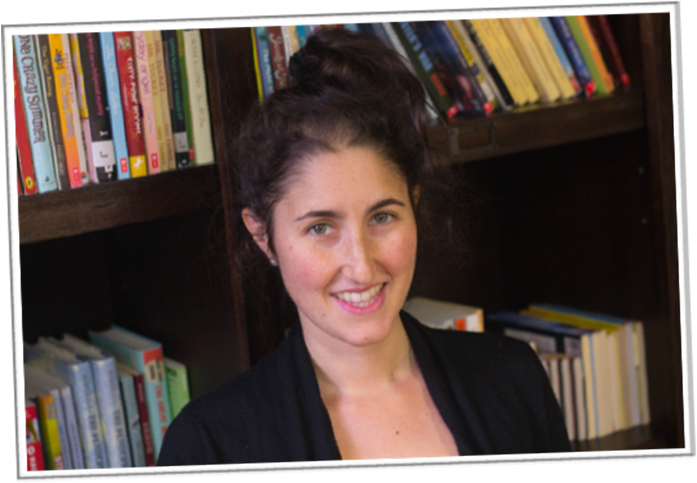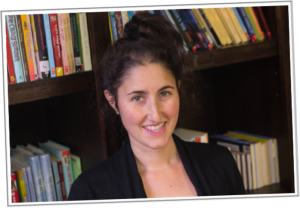1. How did you find your way into the field of social work?
I wanted to help people and I liked talking to people more than physically supporting them in a rehabilitative environment. I was most interested in hearing about people’s concerns, lessons learned, thought processes, and challenges as they built themselves and their lives around them. I looked around me and saw that I knew so many people’s life stories in my neighborhood, and it made me realize that I wanted to be a part of people’s psychological self-development in a practical way and to help others attain behavioral health solutions that they could then utilize, feel good about, and replicate in other parts of their lives in the future.
2. Tell us about the circumstances or influences that resulted in you pursuing a career as a social worker?
See above answer and this one. I studied occupational therapy prior to obtaining my masters degree in social work. I loved the concept of addressing the person within his/her environment and factoring in body health with its impact upon mental health (and vice versa). In my OT program, we studied the medical models of psychology and anatomy and the pathology related to these fields as well as the strengths perspective of empowering an individual to achieve independence and meaning though lifestyle within the auspices of healthcare. I loved what OT stood for, but after several internships within the field, I saw that I did not have a passion of assessing activities of daily living and therefore took a two year break to wear several different hats by working in different setting with a variety of populations, meet with career counselors, take career assessments (to see which field would be best for me), and perform research and informational interviews. I decided that social workers wore a lot of different hats and can still work in the healthcare setting with a behavioral health perspective, which would ultimately become the best professional fit for me.
3. What are some of the changes you have experienced through your career and how has your career grown from those experiences?
I have worked with more populations that I can name- cradle to grave really (newborn to senior) in schools, community settings, nursing homes, hospitals, and more. I did not anticipate enjoying understanding systems as much as I do, and I thought that working within the institution setting was not for me, but I was wrong.
4. What is a typical day like for you?
I don’t have a typical day- that’s the beauty of working with people- you can plan with your team all you want with all of the knowledge of clinical content and institutional resource management, and people will still keep you on your toes. In a hospital setting, the day started with social workers performing rounds with nurses. In a health insurance setting, it involves calling patients to perform assessments and ensure that people are receiving the services that they need. In a school, it’s ensuring that students feel ready to learn and safe to fail when they need to learn new tasks.
5. What do you feel are the most impactful social justice issues social workers are facing today?
Not enough financial backing for mental health and social service implementation. Many budgets have been slashed- 31% of the budget in 2012, closing half of Chicago’s publicly funded mental health clinics, and Governor Bruce Rauner is not passing budgets at all for this year. I believe that part of this is due to the stigma of mental health challenges and their subsequent intervention.
6. Any advice you would give to new social workers entering the field?
It is very challenging to have access to jobs that pay a comfortable (or even often a livable) salary without your LSW and LCSW. Get your license ASAP and find affordable supervision for both clinical and personal support. Finding the right working environment is crucial too because when you’re busy putting out everyone else’s fires, you need to be able to trust and rely on your coworkers’ and supervisor’s support in order to do your job well (due to delegating and the interdisciplinary nature of the field) and to prevent burnout.
Check out some of Jane’s tips to be less stressed and more productive:
“Tips on Saving Time at Work by Being More Productive & Less Stressed in Your Working Environment”
“How to Manage Conflict in the Workplace”
7. What are some strategies you recommend for new social workers to maintain a healthy work life balance?
I run a support group for burnout prevention and professional development for early stage mental health providers called Counselors Autonomous, and it focuses on regulating stress, empowering young workers to have access to resources and a peer-based community that furthers their professional goals and capabilities, to engage mental health providers in turning to mindfulness, healthy eating, regular exercise, education, and peer support as the most effective form of advocacy.
“How Can You Reduce the Effects of Daily Stress & Keep Burnout at Bay?”
“How to Eat so That You Are Productive & Performing at Your Best”
“Meditation 101 With Helpful Apps”
“Healthy & Easy Recipes for Students and Professionals”
8. What has been your most memorable time as a social worker?
Running peer consultation groups successfully for my fellow young social workers in the support group that I founded: Counselors Autonomous
9. What is a personal strength you bring to your social work career? What advice would you give new graduates to help them find their own strengths to further their social work careers?
I am curious about people’s stories- the experiences that they go through and the narratives that they use to support their process along the way. This is all fascinating to me, and supporting people by helping them to navigate the hickups along the way is very rewarding to me. Staying curious helps me to keep a balance between my clinical experience and my personal emotional health. I suggest to find that thing that makes you tick about the field and search for where that exists in this broad field.
10. Any additional advice you would like to share with students considering social work as a career?
Peer support is just as important as clinical supervision.
You may also like to read her article: “Choosing, Researching and Applying to Master’s in Social Work Programs

 Jane received her Master of Social Work degree with a concentration in health, children, and families from Loyola University Chicago. Jane has worked with clients of all ages in varying environments. She prefers to tie in creativity and health to her support services.
Jane received her Master of Social Work degree with a concentration in health, children, and families from Loyola University Chicago. Jane has worked with clients of all ages in varying environments. She prefers to tie in creativity and health to her support services.